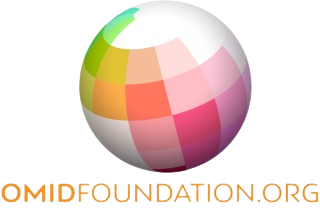Baria
Baria is a town in Senegal about 7 hours’ drive from the capital Dakar. The village has just over 2000 inhabitants with almost all of whom live from subsistence agriculture. There is no power supply there although a solar-powered well to provide clean water was installed in 2018. In the village there are many illiterate and almost all families are very poor and cannot afford the school supplies. Since last year, there has been a sponsorship program organised by Heimatstern e.V., which finances the costs of school supplies and school clothes, as well as hot meals. As a result, 70 pupils were enrolled in the last school year instead of 20. That is why we have supported the new construction of 2 school rooms of 63 sqm each and equipped it with 20 school benches each. There are 3 children per desk, so there is room for another 120 children in the new school year.
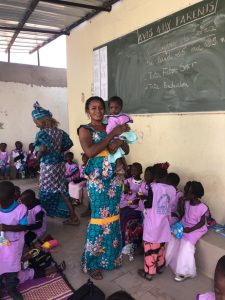
In order to ensure that more girls can attend school and do not have to take care of their little siblings at home at primary school age, a kindergarten is planned. In addition, it is planned that in the future young women from the village will also be able to earn money as childminders.
Three young women who attended the final class in the 2018/2019 school year have been doing an internship in Thies or at a nursing school in M’Bour since October. The costs of accommodation, meals, evening courses, tutoring, bus travel costs, work clothes in the hospital and further education in the field of child education were covered for the school year 2019/2020. The young woman, who is trained as a nurse, is the first woman from the village to receive an education. At the beginning of 2020, another woman from Baria started a two-year course as a nursing assistant in Kaolack. They are paid for the training costs as well as the bus costs within Kaolack. 4 more girls are supported 2022/2023.
During our visit to Baria we found that the health ward and especially the room for childbirth was in a very poor condition and have rehabilitated it.
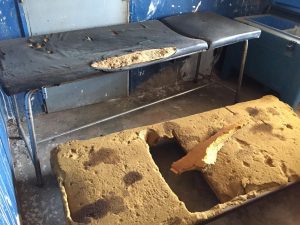
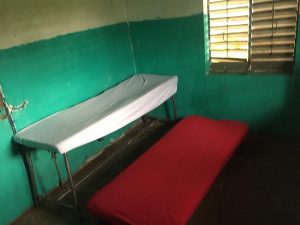
Following the relaxation of the barriers, construction of another well with a solar-powered pump began in September 2020. It was put into operation in November. Clean groundwater improves the hygienic conditions for the villagers.
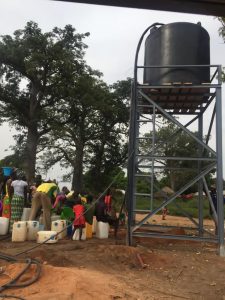
A 48-square-metre covered women’s meeting point has also been built, allowing women to exchange views and also to discuss information on nutrition or health issues.
Pandemic project in Kaolack, Senegal
The Covid 19 outbreak and curfews hit street vendors in cities where revenue to feed their families was completely lost. Aid workers in Kaolack made it possible to distribute basic food to more than 50 affected families. The emergency supply included rice, onions, oil, sugar and tea, so the greatest need was alleviated.
About 200 children from poor families do not go to school for these at least 4 meals are prepared with protein-rich food.
So far, we have funded this project with Euro 47.281,00
